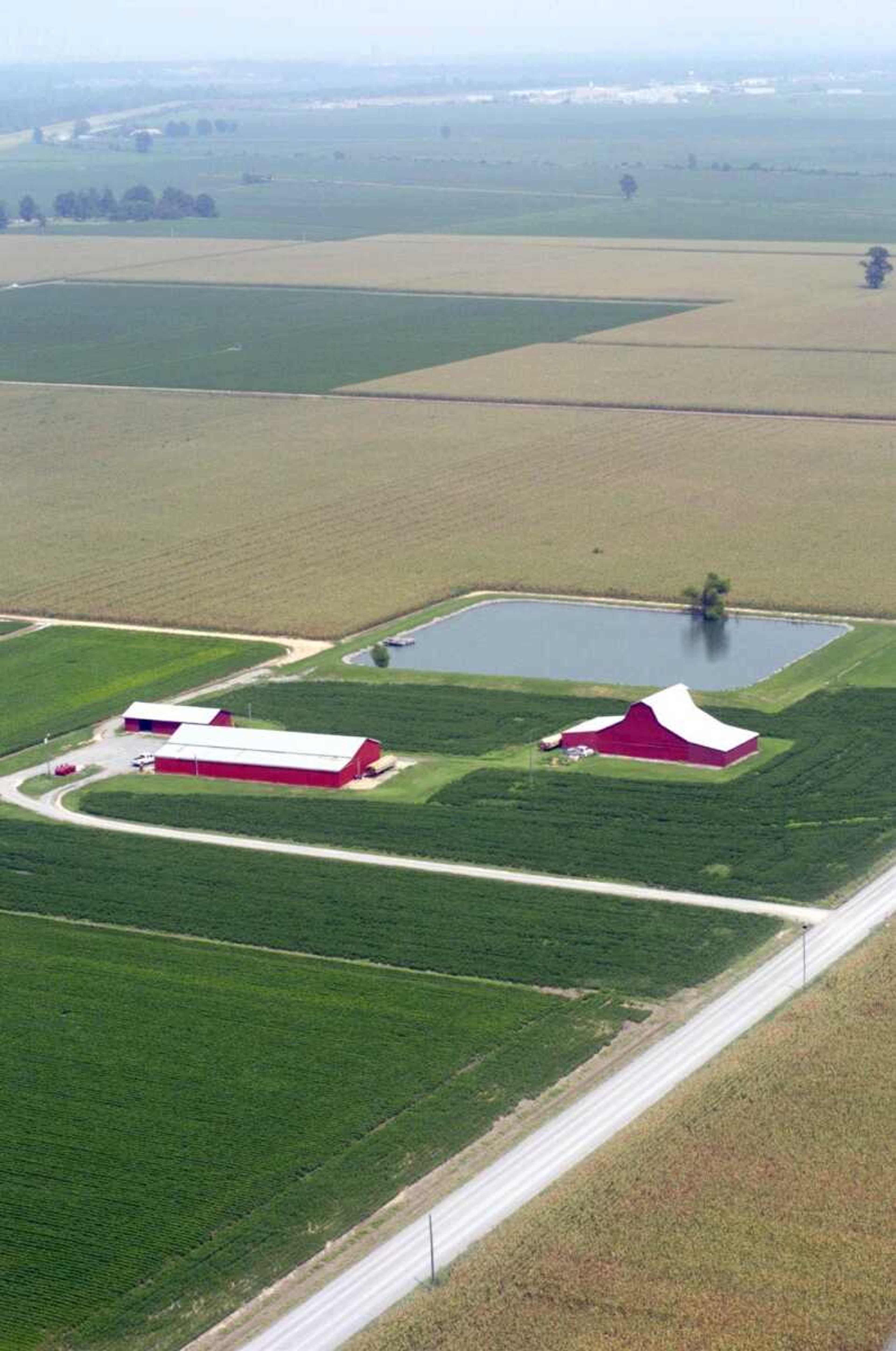Assessing farmland
Property tax time is here again. From now to the new year, people in local counties will be mailing checks or making stops at their collector's office. And like other business owners, farmers will have to pay tax on their land. But in Missouri farmers pay a much lower rate of property tax than most business owners and homeowners...
Property tax time is here again.
From now to the new year, people in local counties will be mailing checks or making stops at their collector's office. And like other business owners, farmers will have to pay tax on their land.
But in Missouri farmers pay a much lower rate of property tax than most business owners and homeowners.
Taxes on agricultural land are assessed based on the land's productive value, not on its market value, like residential and commercial property. Farmland is assessed at 12 percent of its productive value, residential at 19 percent of its market value and other property at 32 percent of its market value. Farming is the only business that enjoys this kind of property tax break, although local taxing entities can establish an Enhanced Enterprise Zone to give certain industries property tax breaks for a limited time period.
In the end, this way of calculating property taxes means big savings on yearly taxes for farmers. Productive value is typically about 23 to 25 percent of the market value of a piece of farmland, said Bruce Davis, chairman of the Missouri State Tax Commission.
With a recent tax commission vote, Missouri farmers will continue to see those same savings. The three-member commission voted 2 to 1 earlier this month against a recommendation raising the rate at which land's productive value is assessed, despite a report by the University of Missouri's Food and Agricultural Policy Research Institute that showed productive value has risen in recent years.
Gov. Matt Blunt urged the commission to vote "no" to changing the assessment rate. Farmgroups praised the decision, saying an increase would hurt farmers who are already dealing with increasing input costs and that the market's future is too unpredictable to raise the assessment rate (the new rate would have applied to the 2009 and 2010 tax years). The Farm Bill still hasn't been passed, and Blunt said farmers can't be sure without passage of that bill how badly they'd be affected by the higher tax rate.
Davis, a Blunt appointee, was the only one to vote against keeping the assessment rate the same, following the recommendations of researchers.
When news of the vote came out, so did a flurry of news releases from Blunt and farm groups.
"This is definitely not the time to impose an increased tax burden on our hard-working farmers," said state Rep. Steve Hobbs, a Republican and chairman of the House Committee on Conservation and Natural Resources.
In Cape Girardeau County, the assessed productive value of farm land is small compared to the assessed value of other land and buildings -- only 2.7 percent of the total assessed property as of Jan. 1, said Roger Arnzen, chief appraiser with the Cape Girardeau County Assessor's Office.
But in Bootheel counties where farming, particularly row crop farming, has a larger presence, the percentage is much greater.
In New Madrid County, farm land makes up about 7.7 percent of the assessed value in 2007, said New Madrid County Assessor Ronnie Simmons. The county had 394,946 acres of farmland in 2002, according to the USDA's Census of Agriculture.
In 2006, the last year for which numbers are available, Missouri had 30.1 million acres of farmland. The assessed value of farm land outside of any town's boundaries, statewide, was about $1.5 billion, according to the Missouri State Tax Commission.
With those large tracts of farmland, counties with a large agriculture presence, and the state itself, could see much more money in property taxes if farmland was assessed at its market value, not its productive value.
Or could they?
Missouri Corn Growers Association president Mike Geske, a farmer from Matthews, Mo., said that formula might not be as simple as it appears on the surface.
"If that farmer has to pay a tax based on that speculative value, it can absolutely put him out of business," Geske said of basing farmland property taxes on market value. For a farmer, the value of land comes from what it can produce, not what it sells for, and the tax system reflects that, Geske said.
In some places, like areas near cities, market prices can be extremely inflated. Geske and other agriculture advocates say taxes on those extreme market values would be too much for farmers to afford, and they'd be left with no choice but to sell the land. Agriculture's decline would accelerate.
And though commodity prices are high, Geske said that doesn't mean farmers have money to pay more taxes. In fact, some farms are showing little to no profit this year because of drought and higher input costs, he said.
"There were a substantial number of farmers, especially in the Bootheel, that lost money this year and didn't have a good year despite high prices," Geske said. "To face the possibility of a tax increase on the value of land, when they didn't make any money, doesn't seem fair."
msanders@semissourian.com
335-6611, extension 182
Connect with the Southeast Missourian Newsroom:
For corrections to this story or other insights for the editor, click here. To submit a letter to the editor, click here. To learn about the Southeast Missourian’s AI Policy, click here.









